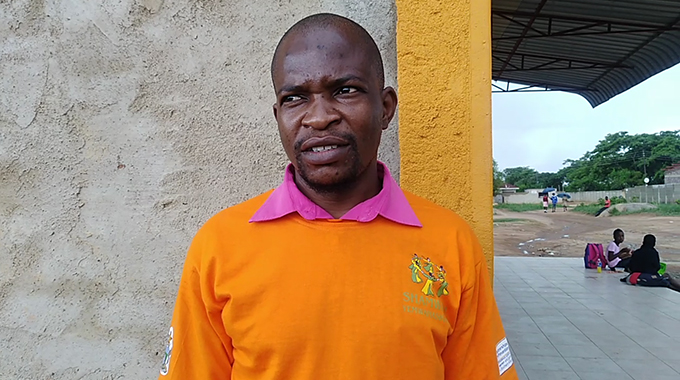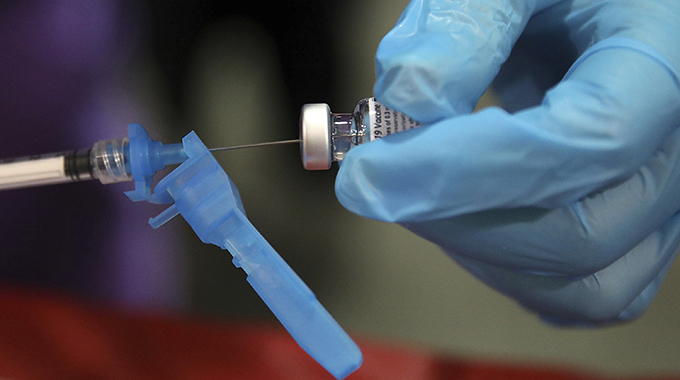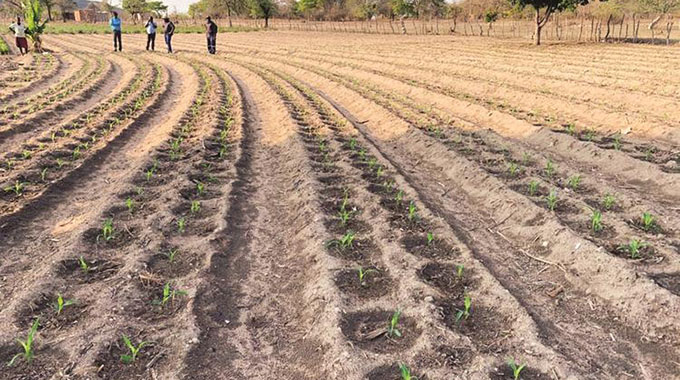Chitungwiza water point committees receive training on Covid-19 prevention

Muchaneta Chimuka Senior Reporter
CHITUNGWIZA water point committees yesterday received training on Covid-19 prevention and coping mechanisms that supposed to be implemented at various water collection points in the area to protect communities from the Covid-19 infections.
The trainings were coordinated by the Community Water Alliance Organisation with the support from Chitungwiza Municipality, Deaf Zimbabwe Trust and Shamwari Yemwanasikana in Zengeza and Unit D.
National coordinator of Community Water Alliance, Mr Hardlife Mudzingwa, said there was a massive shortage of portable water in Harare and Chitungwiza.
“Chitungwiza relies on water from Harare municipality hence it is the most affected if Harare is faced with the same. Many people are relying on borehole water, which is associated by overcrowding, which is also the reason we came up with a programme entitled Hurukuro Patsime/Ingxoxo Emthonjeni. The aim is to support residents with information on how best they can equally share water, reduce all forms of gender based violence or conflicts that arise at water collections points and to prevent the novel corona virus at such places,” he said.
He said they had supported the water point committees with sanitizers, soap, face masks and education to make sure that everyone who visits the borehole points abides with the water sanitation and hygiene mechanisms to reduce the spread of Covid-19.
“The project is aimed at ensuring that people have access to clean, safe and portable water.
The water shortage in Zimbabwe started in November 2019 and resulted in Zimbabwe instituting a 96-hour water-shedding. This practice involves the storing of water in reserves for a period of time. Yet, even with this practice in place, Zimbabwe’s water supplies are running thin, forcing many citizens to use boreholes. Due to this massive demand for water, boreholes have become breeding grounds for Covid-19. Many people are going there without wearing their face masks and since the boreholes are manually operated chances of the virus spreading are high if stern measures are not taken,” said Mr Mudzingwa.
Chitungwiza municipality spokesperson Mr Lovemore Meya said they had already drilled more than 25 boreholes and rehabilitated some in a bid to ease the pressure at the existing boreholes.
“In some areas we have solar operated boreholes and people do not have to necessarily use a lot of energy to pump the water and we pray that these new climate smart innovations will help reduce the spreading of Covid-19. Who knows, we might have remote controlled boreholes in future and do away with the manually operated ones,” he said.
Secretary of Unit D Water Point in Chitungwiza, Annie Mutunzi of Ward 15 said they were going to implement what they had learnt in terms of Covid-19 prevention.
“Water is required in preventing Covid-19 because we use it in handwashing and home sanitisation. We have learnt that we should give first priority to pregnant and lactating mothers, people living with disabilities, the aged and other vulnerable members of the community when fetching water so that they do not wait for long periods of time in the borehole queues,” she said.
She added that it was their duty to monitor all the proceedings at the water collection points to ensure that everyone complied with the World Health Organisation Covid-19 regulations in preventing the spread of the virus.
Councillor Jabulani Mutunzi of Ward 15 in Chitungwiza said most people in his community were complacent and breaching Covid-19 regulations at will.
“As you can see people are just moving freely without wearing their face masks yet we have recorded Covid-19 cases in our community and chances are high that they might be infecting each other unknowingly at the boreholes, markets and in buses among other public places. Some are even attending funerals in their numbers and there is poor monitoring hence the importance of this kind of education that has been brought to us by the CWA,” he said.
He said, it was imperative that COVID-19 prevention protocols like regular washing of hands with soap under running water, social distancing and proper wearing of masks be maintained at public water points.









Comments